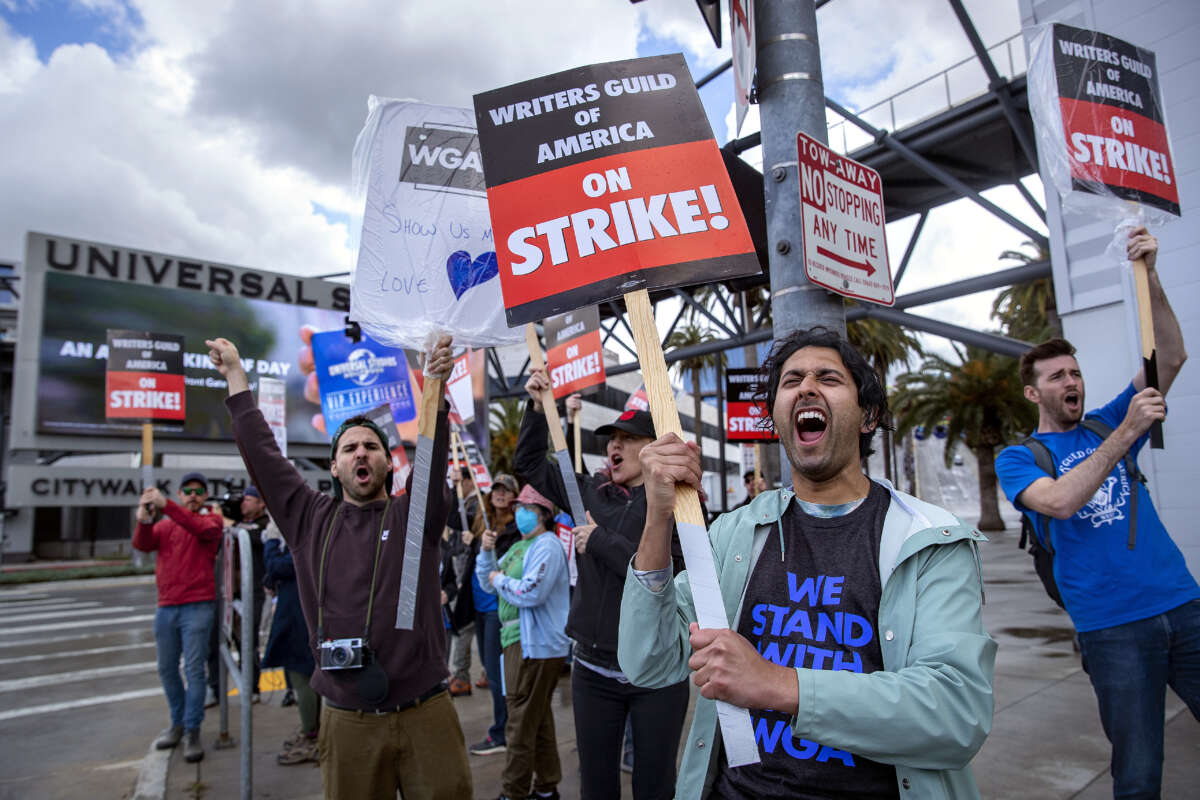Honest, paywall-free news is rare. Please support our boldly independent journalism with a donation of any size.
The U.S. Supreme Court’s decision in Glacier Northwest v. Teamsters Local 174 is outrageous — valuing property over workers’ rights. But it could have been much worse.
Unions still have the right to strike. Employers still can’t generally sue unions in state court for losses caused by strikes. But the decision does open the door to whittling away those rights more in the future.
The practical impact of the Court’s decision is that employers will be suing unions more often for alleged property damage caused by strikes — and that therefore unions (and their attorneys) are likely to be more cautious.
But the Court did not do what many had feared it would do in this case: overrule longstanding precedent that employers generally cannot sue unions in state court over activities — like strikes — covered by the National Labor Relations Act.
Instead, it found that this case fell under an already-existing exception for failure to take reasonable precautions to prevent foreseeable, imminent, aggravated damage to employer property.
Workers and unions are right to be furious at this ruling. But we should be careful not to sensationalize or overstate it — which could do more damage to the right to strike than the ruling itself does, by making workers scared to exercise it.
“American workers must remember that their right to strike has not been taken away,” said Teamsters President Sean O’Brien in response to the ruling. “All workers, union and nonunion alike, will forever have the right to withhold their labor.” His statement went on:
The Teamsters will strike any employer, when necessary, no matter their size or the depth of their pockets. Unions will never be broken by this Court or any other.
Today’s shameful ruling is simply one more reminder that the American people cannot rely on their government or their courts to protect them. They cannot rely on their employers.
We must rely on each other. We must engage in organized, collective action. We can only rely on the protections inherent in the power of our unions.
Hardened Concrete
The question the Supreme Court considered in the Glacier case was whether the employer could sue Teamsters Local 174 in state court over the allegedly intentional destruction of the company’s concrete when striking drivers who had set out with deliveries of ready-mix concrete returned their loaded trucks, requiring the company to dispose of it before it set.
Prior court cases say that an employer can’t sue a union in state court over activity arguably covered by the National Labor Relations Act. Instead, the employer has to go to the National Labor Relations Board.
There is an exception, though, if striking employees don’t take reasonable precautions to protect employer property. For example, in one case, employees walked out of a foundry when molten iron was ready to be poured — which the court found could have caused substantial property damage.
This exception is narrow: property damage that is caused by a lack of reasonable precautions. It doesn’t include things like economic losses due to temporary closure of a store or factory, strawberries rotting in the field because farmworkers are on strike, or milk going sour in the fridge because baristas have walked out.
The trial court in Washington state dismissed Glacier’s claim because it found that the Teamsters’ strike action was arguably protected under the National Labor Relations Act. The Washington State Supreme Court affirmed.
The United States Supreme Court has now overruled that decision and sent the case back to the trial court, because it says that — assuming the facts alleged in the employer’s complaint are true — the union did not take reasonable precautions to prevent concrete from hardening.
The Supreme Court did not order the trial court to decide against the union, just that the case be allowed to proceed. And it left open the possibility for the state courts to dismiss the case again, depending on what the NLRB does about a pending unfair labor practices complaint against Glacier related to the same strike.
The NLRB issued its complaint against Glacier after the Washington State Supreme Court affirmed dismissal of the state court case. The U.S. Supreme Court explicitly did not rule on whether the lawsuit would have been preempted if the NLRB had issued the complaint earlier.
Chipping Away
Depending on how future cases play out in state and federal court, Glacier could end up being a relatively small change to labor law or another in an escalating series of court decisions chipping away at the right to strike.
Already the laws are stacked against powerful strikes. Employers routinely obtain injunctions limiting where and how many strikers can picket; economic strikers can be permanently replaced; secondary targets often can’t be picketed; and so on.
Comparisons to other areas of law, like abortion rights, are useful. Roe v. Wade was not overturned in one night. It took nearly 50 years of legal battles in which courts questioned and undermined Roe v. Wade, until a conservative majority finally overruled it.
Similarly, right-wing attorneys and judges will try to build on Glacier to expand employers’ ability to sue unions. But for the moment, the labor movement may have dodged a bullet.
This story was originally published by Labor Notes.
Media that fights fascism
Truthout is funded almost entirely by readers — that’s why we can speak truth to power and cut against the mainstream narrative. But independent journalists at Truthout face mounting political repression under Trump.
We rely on your support to survive McCarthyist censorship. Please make a tax-deductible one-time or monthly donation.
